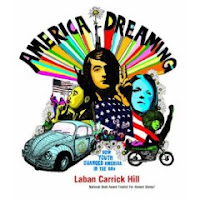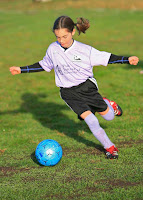 Just wanted to gush for a moment about the participants in my current “Making It Pop: Translating Your Ideas for Trade” class. I’m jazzed by the book projects they’re working on, and last night we had Seal Press managing editor Laura Mazer as our guest via conference call, fielding their questions. She was, as always terrific, and I definitely learned a thing or two (or ten) myself.
Just wanted to gush for a moment about the participants in my current “Making It Pop: Translating Your Ideas for Trade” class. I’m jazzed by the book projects they’re working on, and last night we had Seal Press managing editor Laura Mazer as our guest via conference call, fielding their questions. She was, as always terrific, and I definitely learned a thing or two (or ten) myself.
Meanwhile, I thought I’d start sharing here some of the “advice” that my guests and I are dishing out on the private group blog I’ve established for participants of the course, in the hope that it might be helpful to others of you out there. For what it’s worth!
A few participants asked me the question the other week, “What if I get scooped?” Meaning, what if you find out, as you’re working on your book proposal, that someone else is coming out with a book that sounds frighteningly similar to yours. Here’s my response:
NO one else has your brain, your particular constellation of experience and perspective. So even if you hear of someone else writing about the very topic that has become your heart and soul, TRY not to let it get you down. It’s hard, I know. I learned this the hard way.
Let’s say, however, that you just learned through the grapevine about something in the works that feels way too similar to your vision. There are infinite ways to regroup. Say you were working on a proposal for a cultural history of single women, structured chronologically from the early 20th century-present, and you just heard about a book coming out called Bachelor Girl, that is already in galleys, and that follows, gulp, the very same structure. (This happened to me. My cousin knew the book’s editor.) Instead of folding up your tent in defeat–which is, ahem, exactly what I did–you could considering transforming your idea into an anthology. Or into a compilation of writings about singleness written by single women through the ages. Or you could ask to see a copy of the galley and find out what that other author is *not* covering and make that your jumping off point. There is never just one book that can be written on a subject. If the topic is worth one book, chances are it’s worth more.
Reviewers like to review books in twos and threes, so overlap sometimes works to your advantage, if the timing is right. Also, remember that a newspaper or magazine article is not the same as a book. Often, the journalist who writes a piece that’s close to your topic, or your perspective, can become your ally (and review your book later on!). Chances are, he or she is not already writing your book. Because your book is YOUR book. It’s you.
That said, there is, as they say, very little that’s truly new, under the sun. Much of what we write and think and teach is a continuation of what’s already out there. So the trick is to tap into your particular contribution–from the start. What perspective/experience/angle do you have, because of who you are, that others don’t? Answer that, and you will never, ever, be “scooped.”









